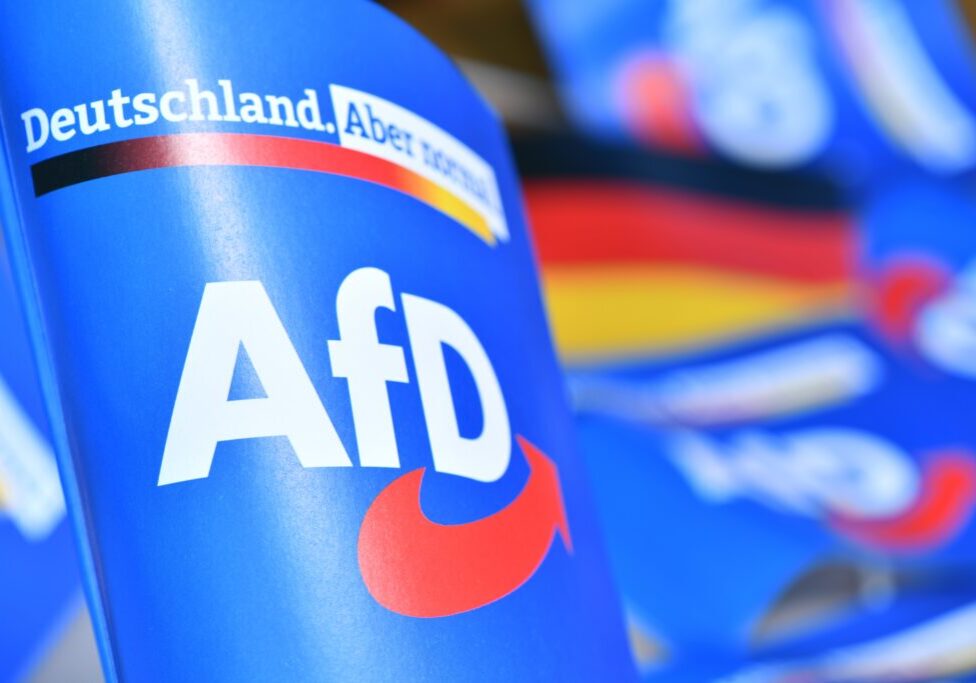Australia/Israel Review
Europa Europa: Diplomatic Double-talk
Apr 2, 2007 | Douglas Davis
Douglas Davis
DIPLOMATIC DOUBLE-TALK
There are two rules you must rigorously observe when listening to European officials declaim on the subject of Israel-Palestine: Turn your cynicism meter up high and take a lawyer along to decipher the language.
So it was last month when Benita Ferrero-Waldner, the European Union’s foreign affairs supremo, addressed a small, private meeting in Berlin that was convened to focus on the state of European-Israeli relations.
After a ritualistic celebration of Europe’s shared values with Israel, Ferrero-Waldner offered a ringing endorsement of Israel’s legitimacy and its right to exist. The Israelis present – including senior political, military and intelligence figures, plus a hatful of ambassadors to various European capitals – might have been excused a collective groan.
This was, after all, the same Ferrero-Waldner who, just one week earlier, had solemnly intoned that even if the Hamas/Fatah government failed to meet the requirements of the international community – to recognise Israel’s right to exist, renounce violence and accept previous agreements with Israel – “we will not abandon the Palestinian people.”
That gives rise to some interesting questions: Are the Palestinian people somehow separate from the Hamas government which they overwhelmingly supported in free and fair elections? And what does Ferrero-Waldner’s support for Israel mean – was she suggesting that Europe would aid and support a genocidal Palestine while simultaneously upholding Israel’s legitimacy and right to exist?
The logical inconsistency was classic Euro double-talk. Fortunately, the head of the European Parliament’s Foreign Affairs Committee, Elmar Brok, was on hand to unravel the knot. He reminded delegates that la Benita had also told the Berlin meeting that, “If it comes to the real point Europe will be on the side of Israel.”
But that only served to confuse the issue further. The “real point”, as one German participant reminded the good Mr. Brok, had already been passed when Mahmoud Ahmadinejad declared Iran’s intention to wipe Israel off the map – and then defied the United Nations by continuing its uranium enrichment program. Far from rushing to Israel’s defence, Europe’s response had been to plunge into a paroxysm of confusion, indecision and commercial self-interest.
Even Ferrero-Waldner’s bizarre talk about supporting Israel’s legitimacy and right to exist, which should have produced a warm glow, generated a bout of queasiness. It is, after all, inconceivable that Europe would find it necessary to proclaim its support for the right to exist of, say, Vanuatu, or assert the legitimacy of, say, Guinea-Bissau. Merely raising these issues in the context of Israel implies that such support is a conditional privilege which could, in certain undefined circumstances, be withdrawn.
The bottom line of Ferrero-Waldner’s perplexing utterances is that Palestinian political intransigence and continued terrorism against Israelis are cost-free exercises – at least when it comes to aid from the European Union.
Indeed, after a brief hiatus following the Hamas electoral victory in January last year, the Europeans turned on the spigot with a vengeance. In the 12 months that followed the Hamas election, the European Union actually increased its annual aid to the Palestinians to a whopping US$865 million. That represented a 27 percent increase over the previous year.
Sadly, the money was not spent on hospitals, schools and welfare, but on weapons, explosives and plain old corruption. The Palestinians, recipients of the highest per capita aid transfers in the history of foreign aid anywhere – about US$4,000 per person per year, according to the World Bank – still cannot make ends meet. Nor is there much to show for the US$20 billion in international aid that is estimated to have reached Palestine since 1993.
Last month, the newly re-appointed Palestinian Finance Minister, Salam Fayyad, threw up his hands in despair. The former World Bank official admitted he had no idea where most of the money had gone. The spending of the Palestinian Authority, he lamented, was out of control and no one could track where the money was going. The system, he added, was “in a state of total disrepair.”
Never mind. In spite of this grand kleptocracy, Ferrero-Waldner and her European colleagues will continue pumping their euros into Palestine, even if the cash is diverted into weapons purchases, bloated security forces and Swiss bank accounts.
And, given this precedent, there is every reason to believe that the European Union will capitulate to the demands of some of its leading members – notably France, Italy, Spain and Finland – that it match its economic “flexibility” with political “flexibility” by embarking on a full-blown dialogue with Hamas, whether or not they clean up their act.
Such a development will have disastrous consequences. Not only will it cut the ground from under the moderates but it will also remove all pressure on the Palestinians to achieve peace with Israel on the basis of a two-state solution.
Not surprising, then, that when I asked Israeli Foreign Minister Tzipi Livni whether she could envisage a role for Europe at the high table of Middle East diplomacy, she shifted uncomfortably before turning to an aide: “Don’t we have another urgent meeting we must attend?” The little joke answered the question.
Israelis have reason to be sceptical of Europe.
![]()
Tags: Europe






